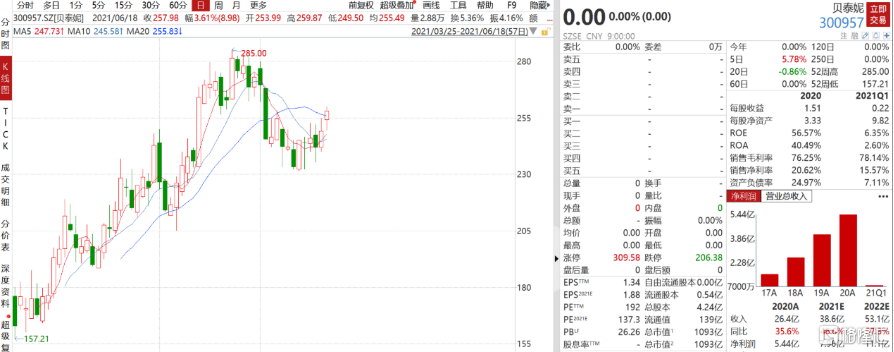While vaccines against SARS-CoV-2 were developed in record time, drug research is struggling to find an effective cure against Covid-19. But there are hopeful approaches.
From Anja Martini, tagesschau.de “There will not be one miracle pill against Covid-19” – with these words Federal Research Minister Anja Karliczek dampened the prospect of rapid scientific success. The Federal Ministry of Research intends to spend 50 million euros on drug research. A panel of experts has made recommendations for several projects. Sandra Ciesek, director of the Institute for Medical Virology in Frankfurt am Main, and Christoph Spinner, senior physician for infectiology and pandemic officer at the Rechts der Isar Clinic in Munich, were involved as experts. He says patients need different therapies depending on the severity or stage of the disease. Remdesivir, hydroxychloroquine or antibody cocktails: they have all attracted attention. But how far is research on drugs against Covid-19 actually?
An asthma spray as a “game changer”?
The active ingredient budesonide is currently the focus of research. It is an active ingredient in an asthma spray, also known colloquially as cortisone spray, which is said to be able to prevent severe courses of Covid-19. This is the conclusion reached by researchers at Oxford University in a study that was published in the journal “The Lancet”. The British scientists had randomly divided 146 adult corona patients with mild symptoms into two groups. 73 of them were treated with budesonide twice a day at an early stage of the disease, 73 received standard therapy such as paracetamol for the fever. Subjects who inhaled the active ingredient budesonide had to go to hospital less often and recovered more quickly than those who received standard therapy. According to senior physician Spinner, that sounds good at first – but the study is still based on a hypothesis. A placebo-controlled study must follow in which the second group is treated with a dummy drug. In addition, the number of subjects was very small. The results would have to be checked in larger studies.
Anti-inflammatory drugs slow the immune response
The anti-inflammatory dexamethasone is mainly used in patients who are admitted to the clinic. It is recommended in the national guideline for the treatment of Covid-19 patients. The drug, which belongs to the corticoids, is supposed to slow down an excessive immune reaction, which often occurs with Covid.
Antibody drugs attack the virus
These active ingredients were made public when the former US President Donald Trump became infected with the corona virus in October. Among other things, he received an antibody cocktail that Regeneron had developed and that is produced by the pharmaceutical manufacturer Roche outside of America. At that time, the drug was not yet approved in the United States. After his relatively quick recovery, Trump described the cocktail as a “miracle” and a “cure”. The drug now has emergency approval in the USA. For Europe, the tests are being carried out by the European Medicines Agency (EMA). At the beginning of the week Roche presented the first results of the clinical phase 3 study. According to this, the administration of an antibody combination from the agents casirivimab and imdevimab could reduce the risk of symptomatic corona infections by about 81 percent. Unexpected serious side effects did not occur. Antibody drugs such as Bamlanivimab and REGN-COV2 may be used in clinics in Germany under certain conditions. However, they are only to be used at a very early stage of the infection, according to medical experts Spinner.
New development of the TU Braunschweig to “paralyze” the virus
It is different with an antibody drug that was developed in Braunschweig. The Paul Ehrlich Institute has just approved it for the first clinical studies. It is called COR 101 and is intended to be used for the treatment of hospitalized patients. These are patients with a moderate course of Covid-19 who have to be hospitalized, but not yet in the intensive care unit. Stefan Dübel laid the foundation for this drug. He is a biologist and heads the biotechnology department at the Technical University of Braunschweig. The antibody, according to Dübel, binds to the outside of the virus – in a way that prevents the virus from docking on cells. The pathogen is, so to speak, tied up by the antibody and can no longer move; In addition, the virus can no longer penetrate the cells, so that infection can no longer take place. The company CORAT Therapeutics has been running the clinical work since summer 2020. André Frenzel, clinical director, hopes for results for a possible approval soon.
Convalescent plasma: use of naturally formed antibodies
Research into so-called convalescent plasma is also being continued in Germany. Antibodies against SARS-CoV-2 are obtained from the blood plasma of recovered Covid-19 patients. The antibodies work in a similar way to synthetically produced ones. Nationwide, clinics have asked those who have recovered from corona for blood plasma donations in order to obtain naturally formed antibodies. But the statements on the effectiveness are not clear, says the Munich infectiologist Spinner.
Remdesivir, chloroquine & Co .: drugs are “misappropriated”
A glimmer of hope was initially the drug Remdesivir – originally an Ebola drug. In October 2020, however, the World Health Organization (WHO) reported that the agent used as a corona drug had little or no benefit, and a short time later spoke out against hospital treatment. In recent months, the malaria drug chloroquine has also been tested worldwide for its effectiveness against SARS-CoV-2. Ex-US President Trump had touted it as a miracle weapon and “gift from God” at the beginning of the pandemic. The US FDA granted the drug emergency approval – and withdrew it after a few weeks. In June 2020, the WHO finally stopped clinical studies on the effectiveness of the related drug hydroxychloroquine in the fight against the coronavirus.





























































You must log in to post a comment.